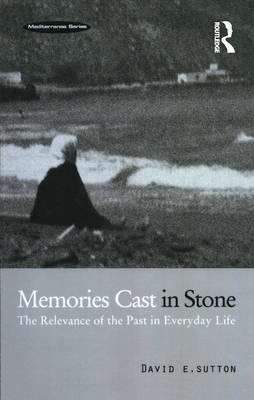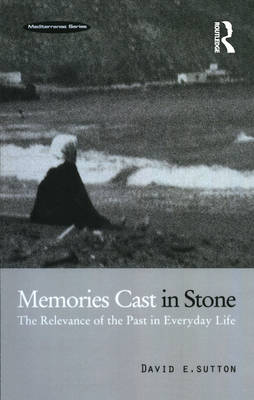
En raison d'une grêve chez bpost, votre commande pourrait être retardée. Vous avez besoin d’un livre rapidement ? Nos magasins vous accueillent à bras ouverts !
- Retrait gratuit dans votre magasin Club
- 7.000.000 titres dans notre catalogue
- Payer en toute sécurité
- Toujours un magasin près de chez vous
En raison de la grêve chez bpost, votre commande pourrait être retardée. Vous avez besoin d’un livre rapidement ? Nos magasins vous accueillent à bras ouverts !
- Retrait gratuit dans votre magasin Club
- 7.000.0000 titres dans notre catalogue
- Payer en toute sécurité
- Toujours un magasin près de chez vous
50,45 €
+ 100 points
Format
Description
How does the past matter in the present? How is a feeling of 'ownership' of the past expressed in people's everyday lives? Should continuity with the distant past be seen as simply a nationalist fiction or is it transformed by local historical imagination? While recent anthropological studies have focused on reconstructing disputed histories, this book examines the multiple ways in which the past is used by people as a critical resource for interpreting the meanings of a changing present. It poses the issue of the felt relevance of the past in constructing present day identities. The Greek island of Kalymnos is a barren and seemingly bucolic setting of tourist imagination. But its history has been one of almost continuous occupation by foreign powers and of often fierce resistance. This has made Kalymnians particularly sensitive to seeing their island in a much wider context and to understanding the 'games played by the powerful'. In examining changing gender relations, European integration, and local perceptions of the war in the former Yugoslavia, this book brings together local, national and international perspectives in a unified field. Controversial contemporary practices of dynamite throwing and dowry giving serve as tropes through which Kalymnians explore alternative ways of living in a changing world. Further, the author argues persuasively for the crucial importance of situated fieldwork in 'peripheral'places in understanding the issues and conflicts of a transnational world. This book serves as an highly readable case study of the complex connections between local and global discourses and practices, and how they are shaped by their relationship to the past.
Spécifications
Parties prenantes
- Auteur(s) :
- Editeur:
Contenu
- Nombre de pages :
- 262
- Langue:
- Anglais
- Collection :
- Tome:
- n° 1
Caractéristiques
- EAN:
- 9781859739488
- Date de parution :
- 01-07-00
- Format:
- Livre broché
- Format numérique:
- Trade paperback (VS)
- Dimensions :
- 139 mm x 216 mm
- Poids :
- 331 g

Les avis
Nous publions uniquement les avis qui respectent les conditions requises. Consultez nos conditions pour les avis.






